
Cambridge University Press
978-1-108-78597-6 Think Level 2 Workbook with Digital Pack British English Herbert Puchta, Jeff Stranks, Peter Lewis-Jones Table of Contents More Information


Cambridge University Press
978-1-108-78597-6 Think Level 2 Workbook with Digital Pack British English Herbert Puchta, Jeff Stranks, Peter Lewis-Jones Table of Contents More Information
4
UNIT 1 Incredible people 10
Grammar 10 Vocabulary 12 Reading 14 Writing 15 Listening 16 Exam practice: B1 Preliminary for Schools 17
UNIT 2 A good education 18
Grammar 18 Vocabulary 20 Reading 22 Writing 23 Listening 24 Exam practice: B1 Preliminary for Schools 25 Consolidation 1 & 2 26
UNIT 3 On the screen 28
Grammar 28 Vocabulary 30 Reading 32 Writing 33 Listening 34 Exam practice: B1 Preliminary for Schools 35
UNIT 4 Online life 36
Grammar 36 Vocabulary 38 Reading 40 Writing 41 Listening 42 Exam practice: B1 Preliminary for Schools 43 Consolidation 3 & 4 44
UNIT 5 Music to my ears 46
Grammar 46 Vocabulary 48 Reading 50 Writing 51 Listening 52 Exam practice: B1 Preliminary for Schools 53
UNIT 6 No planet B 54
Grammar 54 Vocabulary 56 Reading 58 Writing 59 Listening 60 Exam practice: B1 Preliminary for Schools 61 Consolidation 5 & 6 62
Cambridge University Press
UNIT 7 The future is now 64
Grammar 64 Vocabulary 66 Reading 68 Writing 69 Listening 70 Exam practice: B1 Preliminary for Schools 71
UNIT 8 Science and us 72 Grammar 72 Vocabulary 74 Reading 76 Writing 77 Listening 78 Exam practice: B1 Preliminary for Schools 79 Consolidation 7 & 8 80
UNIT 9 Working week 82 Grammar 82 Vocabulary 84 Reading 86 Writing 87 Listening 88 Exam practice: B1 Preliminary for Schools 89
UNIT 10 Mind and body 90 Grammar 90 Vocabulary 92 Reading 94 Writing 95 Listening 96 Exam practice: B1 Preliminary for Schools 97 Consolidation 9 & 10 98
UNIT 11 Breaking news 100
Grammar 100 Vocabulary 102 Reading 104 Writing 105 Listening 106 Exam practice: B1 Preliminary for Schools 107
UNIT 12 Rules and regulations 108
Grammar 108 Vocabulary 110 Reading 112 Writing 113 Listening 114 Exam practice: B1 Preliminary for Schools 115 Consolidation 11 & 12 116

Cambridge University Press 978-1-108-78597-6 Think Level 2 Workbook with Digital Pack British English





Herbert Puchta, Jeff Stranks, Peter Lewis-Jones Excerpt More Information
GRAMMAR Present perfect with just, already and yet SB p.14 1 Complete the sentences with just, already or yet. My little sister is really smart.
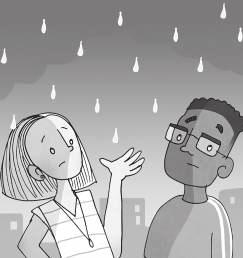




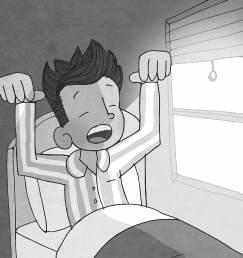

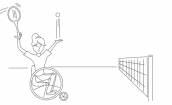

1 She’s learned to walk. She took her first steps last week.
2 She hasn’t learned to read , but she likes the pictures.
3 She’s learned to count from one to five and she’s only one year old!
2 Look at Alex’s to-do list for tidying his bedroom. Write sentences with already and yet.



Alex has already tidied his desk. Alex hasn’t

Cambridge University Press 978-1-108-78597-6 Think Level 2 Workbook with Digital Pack British English








Herbert Puchta, Jeff Stranks, Peter Lewis-Jones Excerpt More Information
Present perfect vs. past simple SB p.17
4 Match the questions with the answers.
0 Have you ever played volleyball? b
1 Where did you play?
2 Did you enjoy it?
3 Were you good at it?
4 Has your team played teams from other countries?
5 Has your team won any trophies?
a No, I wasn’t.
b Yes, I have.
c Yes, we’ve already won three competitions.
d At school.
e No, we haven’t – not yet.
f No, not very much.
5 Complete the conversation. Use the present perfect or the past simple and the information in brackets.

It’s Sunday afternoon.
Lucas Mum, I’m bored. What can I do?
Mum (finish your homework?)
0Have you finished your homework?

Lucas (last night)
Yes, I finished it all last night.
Mum (tidy your room?) 1
Lucas (yesterday) 2
Mum (clean the fish tank?) 3
Lucas (before lunch) 4
Mum (wash your bike?) 5
Lucas (on Friday) 6
Mum (phone Jamie?) 7
Lucas (this morning) 8
Mum (watch that new film on Netflix?) 9
Lucas (last night) 10
Mum Well, I don’t know. What about coming to the supermarket with me?
Lucas Erm … maybe not!
6 Complete the text. Use the present perfect or past simple form of the verbs in the list. You can use some verbs more than once.
be | buy | do | get | have | live | look not finish | not learn | stop | work
My grandmother is 65 and 0 has done a lot of things in her life. She 1 born in the country and 2 on a small farm until she was 16. She 3 in many different places, but she always says the farm 4 the best place of all. She 5 school because she started working when she was 15. She 6 many different jobs in her life – she 7 a children’s nurse, a dressmaker and a shop assistant, among other things. She 8 in a very expensive shop in London for several years. She 9 working after she 10 married. She 11 five children and she 12 after the house. Grandma loves new things. She 13 just a laptop, but she 14 how to use social media yet. I’m going to her house to help her now.
GET IT RIGHT!
Present perfect with just, already and yet












Learners often make word order errors with just, already and yet.
✓ I have just finished my homework. ✗ I just have finished my homework. ✓ He has not passed his exam yet. ✗ He has not passed yet his exam
✓ We have already finished our project. ✗ We already have finished our project.
Correct the sentences.
0 I already have sent a message about the party to my friends.
I have already sent a message about the party to my friends.
1 My brother has yet not had a summer job.
2 My big sister already has learned to drive.
3 My family and I have been just on holiday.
4 Have you yet bought your mum a birthday present?
5 The singer has released already five albums.
6 I just have uploaded some photos.
Cambridge University Press 978-1-108-78597-6 Think Level 2 Workbook with Digital Pack British English Herbert Puchta, Jeff Stranks, Peter Lewis-Jones Excerpt More Information
Personality
1 Circle the correct answers.
0 An active person A loves theatre. B is always doing something. C sleeps a lot.
SB p.13
1 A brave person A takes risks when it’s necessary. B is often angry. C doesn’t like talking.
2 A creative person A often makes mistakes. B has original ideas. C works very hard.
3 A charming person A is very good-looking. B has a lot of money. C is kind and friendly.
4 A cheerful person A often feels sad. B enjoys life. C often gets angry.
5 A laid-back person A is very relaxed. B can’t wake up in the morning. C never goes out.
6 A confident person A doesn’t work hard. B believes in him-/herself. C will keep a secret.
7 A positive person A sees the good in everything. B is frightened of the future. C is often bored.
8 A talented person A has got a lot of money. B isn’t good at sports. C is very good at something.
2 Read the text. Complete the adjectives. The first and last letters are given.
My ideal friend is very 0active – that’s important because I love sport and I want her to play basketball in my team. She’s 1c g and knows how to have fun, so she’s a good person to hang out with. I need a friend who’s really 2c e and is good at art, because I’m not and she could help me and give me some ideas.
Maybe it would be good if she was 3c l too –people sometimes say I’m too 4s s and don’t laugh much. I’d like her to be 5p e as well –I don’t like it when people only see the bad side of things.
3 Write one or two sentences about people you know (friends or family). Use the adjectives in Exercises 1 and 2.
6 Rebecca wasn’t on time for school all week. She’s a bad reputation for being late!
7 Hurry up! You a music lesson in ten minutes.
8 Wait a minute. I want to a photograph. 9 We a group to collect money for the hospital.
10 That isn’t right! You’ve a mistake.
11 I know it isn’t very good, but I my best.
12 Oh no! We’ve the race. Our team is last.
13 Emily doesn’t like risks. She likes to be safe. 14 Have they enough work for today?

Collocations SB p.17
4 Complete the sentences with the correct form of the verbs in the list. Use each verb twice.
do | form | get | have | lose | make | take
0 Jonah didn’t have any homework last night.
1 The singer Leila Jenson an appearance in this film.
2 How many presents did you for your birthday?
3 Hundreds of people have their lives in the hurricane.
4 I need more information before I can an opinion.
5 The children a really good time at the zoo yesterday.
SB p.15
5 Tick (✓) the five sentences that can be completed with just. 0 I’ve … cleaned the floor. ✓ 1 That horror film, The Blob, is … terrifying. 2 He can’t tell you if you don’t … ask. 3 This dress is almost … perfect. 4 The flower show was … amazing. 5 He’s … a child, but he’s a talented artist. 6 No problem, it was … a thought. 7 Gemma has … phoned. She’s on her way.
6 Match the five sentences in Exercise 5 with the meanings of just. 1 a short time ago 0 2 only 3 really
Cambridge University Press



978-1-108-78597-6 Think Level 2 Workbook with Digital Pack British English Herbert Puchta, Jeff Stranks, Peter Lewis-Jones Excerpt More Information


serious
positive Personality adjectives

brave charming
cheerful creative laid-back UNIT 1 INCREDIBLE PEOPLE
make a mistake / an appearance do your best / work get a present / a reputation lose a race / your life / something important / your home take a risk / a photograph form a group / an opinion





1 Complete the sentences with the words in the list.









amusing | bossy | curious | reasonable | reliable | smart
0 Amy’s amusing
1 Coral’s
2 Aidan’s
3 Zara’s
4 Seth’s
5 Jake’s
. She makes me laugh.
. She’s clever and knows a lot.
. He’s fair and makes good decisions.
. She always tells us what to do.
. He always does what he has promised to do.
. He’s interested in how things work.


It was just a joke. Tom’s just arrived. The book was just fantastic!
2 Think of a person you know for each adjective in Exercise 1.
0 bossy
My big brother is bossy. 1 amusing 2 curious 3 reasonable 4 reliable 5 smart
Who are your heroes? We aren’t talking about superheroes like Superman or Wonder Woman; we want to hear your opinions about real people who make big differences to other people’s lives while they do their jobs. So, tell us about the people you think are heroes because of the amazing things they do every day as part of their work.
AParamedics – the people who drive ambulances and help in medical emergencies –are my everyday heroes. The other day, my grandad had a bad fall. I tried to help him, but I couldn’t do it by myself, so I called an ambulance. It arrived almost immediately and the paramedics helped Grandad straightaway. They were very professional and worked quickly, but they were also friendly and cheerful. By the time Grandad was in the ambulance, he was relaxed and smiling again. Every time paramedics go out, it’s an emergency and often a serious situation. Think how many people that team has helped already and how many lives it’s saved!
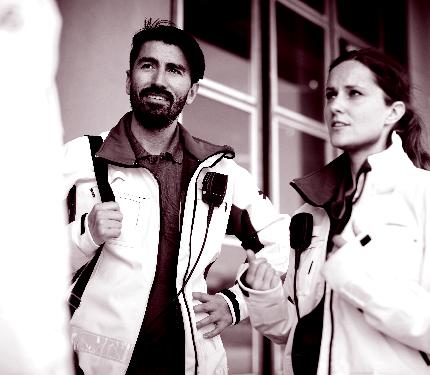
BMy neighbour, Anna, is a firefighter and she does an incredible – and dangerous –job. Firefighters don’t just put out fires, they also help in all sorts of emergencies. Anna’s rescued people from rivers, helped people stuck in the snow and she often has to go to traffic accidents. Firefighters have to be brave, smart and good at working in a team. As well as saving lives, they teach people how to prevent accidents. She says every day at work is different: even on quiet days, they have to be ready for action. Firefighters often take risks in order to rescue people. I really admire them for that.
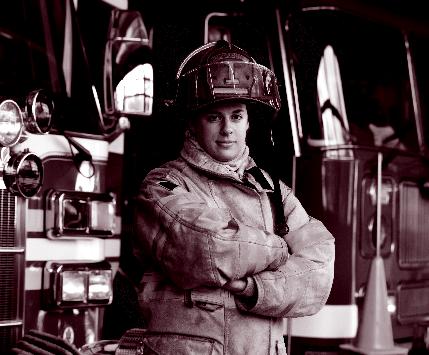
I live on the edge of a big city and until last year there was nothing for teenagers to do. Kids hung out on the streets and some of them got into trouble. Then Jonas, a youth worker, arrived and everything changed! He’s positive and easy-going, but he’s also serious about his job. He wants to help us discover our talents – ‘Be curious!’ he says. He’s organised lots of new activities for us, from songwriting to rock climbing! I can honestly say he’s made an enormous difference to our lives. We’ve got interesting things to do now and a cool place to go in our free time. Jonas is our hero!
1 Read the article. Write the names of the jobs under the photos.
2 Read the article again. Write A, B or C next to the sentences.






This everyday hero …




































































0 has a lot of variety in his/her job. B
1 works with young people.
2 helps teenagers during their free time.
3 is interested in people’s health.
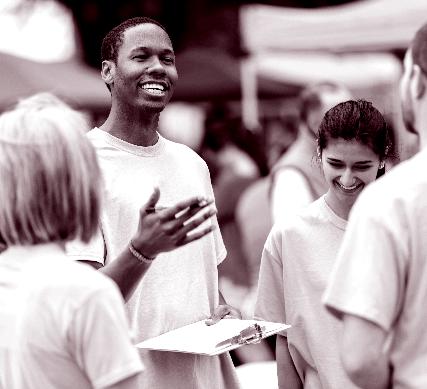
4 often works in frightening and dangerous situations.
5 tries to introduce teenagers to new ideas.
6 helps to make people get better.
1 2 3


3 CRITICAL THINKING Read the questions and circle the best answers.
1 What do the everyday heroes in A, B and C have in common?
A They all save lives.
B They all help other people.
C They all change people’s lives. Because …


2 What are the personalities of the everyday heroes in A, B and C like?
A They’re caring and reliable.
B They’re friendly and popular.
C They’re brave and talented. Because …


1 2 3
A I’m writing about my friend, Liam. I’ve known him for three years. We met when he moved to a house in my street.
B He’s a little older than me, but I always feel like he’s much older! I think that’s because he’s very confident. He isn’t afraid to disagree with adults. For example, I’ve never said ‘No, I don’t agree’ to an adult, but Liam has! I admire him for that.
C Another good point is that he’s very honest. If he doesn’t like something, he says so. He never says ‘Oh yes, it’s great’ just to be the same as everyone else. In fact, this is why some people at school don’t like him very much, I think.
D Does he have any bad points? Yes! He’s forgetful. Last week, he promised to come to my house and help me fix my bike. But he didn’t come. I waited, then I phoned him. He’s honest, so he said, ‘Oh, no! I forgot. I’ll come right now.’ And he did. He arrived with a big smile, saying: ‘I always forget. Sorry.’ How could I be angry?

E I hope we’re going to be friends for a long time.











• Introduce the person. Give his/her name and say when and where you met.
• Explain why you like him/her. Use different adjectives to describe his/her personality (good and bad points!)and give examples. • Finish with a comment about your friendship or your hopes for the future. 5 PLAN You are going to write about a person you know well. Choose a friend or a family member and write a plan. Use the Writing tip to help you. Introducing the person Good and/or bad things about him/her Final comment 6 PRODUCE Write your description in 150–200 words. Use your notes from Exercise 5.
Cambridge University Press


1 1.01 Listen to the conversation. Circle the correct words.
1 They’re discussing last weekend / going to a film / their parents
2 They both like an actor / a film / London
2 1.01 Listen again. Mark the sentences T (true) or F (false).
0 Megan thinks last weekend was exciting. T
1 A film premiere is the first time a new film is shown.
2 Megan wants to go to the premiere of Noah Centineo’s new film.
3 Megan thinks her parents will be happy for her to go.
4 Joe has an aunt and uncle who live in London.
5 Joe doesn’t want to go to the film with Megan.
6 Joe doesn’t like Noah Centineo.

7 Joe and Megan are going to talk to Megan’s parents.
3 1.01 Listen again. Complete the conversations. Use no more than three words.
1 Megan Well, you know that Noah Centineo is my favourite actor?




Joe Yes, of course 0 I know that. So 1 ?
2 Megan Well, I’m going to the premiere!
Joe Oh, that’s a 2 !
Megan Oh? Do you really think so?
Joe Yes, you 3 do it. You’ve always wanted to meet him.
3 Megan Wow, that’s great! Thank you. I’m just worried that my parents … 4 , they won’t like the idea.
4 Joe I know what you mean. But, hey, you know what? You’ve got to 5 !
PRONUNCIATION
Sentence stress Go to page 118.
4 1.03 Put the conversations in the correct order. Then listen and check.
Conversation 1
A We can put a football match together between our street and Nelson Street.
1 A I’ve got an idea for the weekend.
A Let’s speak to some people about it now.
B I’ll come with you. We can do it together.
B A football match? That’s a great idea!
B Yeah? What is it?
Conversation 2
A Thanks, but I’m not sure if we can do everything before Saturday.
1 A Mark, why don’t we have a party?
A I don’t know. Can people come on Sunday?
A Well, the next day’s Monday – that’s why. You know, homework to do, that sort of thing.
B A party? Yes! I’ll help you if you want. Let’s have it this weekend.
B OK, so forget Saturday. But you should definitely do it. It could be Sunday.
B Oh, don’t worry about homework, Stella. Come on! You’ve got to make this happen!
B Yes, I think they can. Why not?
5 Put the words in order to make phrases. 0 what / know / You ? You know what? 1 sure / you / are / ? 2 it / let’s / face 3 that / and / that’s 4 so / don’t / think / I 5 of / sort / thing / that
SB p.18
6 1.04 Complete the conversations with the phrases in Exercise 5. Then listen and check.
0 A Hurry up. The film starts at 8.30.
B Are you sure? I heard it starts at 9.00.
1 A How did the tennis match go?
B I lost. , I’m awful at tennis!
2 A So what did you do over the weekend?
B Not much – read, watched TV,
3 A Oh, Dad! Can I please watch The Voice?
B No, you can’t. I said no TV
4 A I know it’s raining, but let’s go for a walk.
B ? I’m staying right here!
5 A This song’s just fantastic.
B Well, . It’s terrible.
Cambridge University Press 978-1-108-78597-6 Think Level 2 Workbook with Digital Pack British English Herbert Puchta, Jeff Stranks, Peter Lewis-Jones Excerpt More Information







EXAM GUIDE: LISTENING PART 1





































In B1 Preliminary for Schools Listening Part 1, you listen to seven short recordings. For each one, you have to answer a question by choosing one of three pictures.











• Read the questions carefully.
• Look at the three pictures and find similarities and differences between them.









• Identify the situation in each picture and think about the words you might hear.
• You will probably hear words from all the pictures, so don’t choose a picture just because it contains the first word you recognise.

















• Listen carefully to the dialogue and try to understand exactly what the speakers say about the things in the pictures.
Cambridge University Press
978-1-108-78597-6 Think Level 2 Workbook with Digital Pack British English Herbert Puchta, Jeff Stranks, Peter Lewis-Jones Excerpt More Information
Present perfect with for and since SB p.22

1 Complete the sentences with for or since and a number where necessary.

0 Matthew has worked as a computer games tester for three years.
1 I’ve lived in this house 2018.
2 We’ve only had our pet rabbit six weeks.
3 Lauren has played the guitar in the band she was 16 years old.
4 This tree has been here more than 200 years!
5 I’ve written poems I was ten years old.
6 Charlotte has been in the football team 2019, so she has been a footballer years.
7 Joshua has played tennis he was four years old. He was born in 2012, so he has played tennis years.
2 Write sentences. Use the positive or negative form of the present perfect and for or since.
0 Thomas / not see / grandfather / two months Thomas hasn’t seen his grandfather for two months.
1 Shiloh and Joss / be / singers / five years
2 Sophie / not play / football / she broke her leg
3 Jacob / not write / his blog / a long time

4 Dan / not go / to the dentist / a year
5 You and I / be / friends / we were kids
6 They / not see / a good film / ages
7 We / not go / on holiday / two years
3 Jessie wants to ask her friends some questions for a school project. Complete them with the present perfect of the verbs.

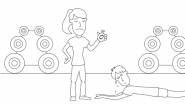
1 How long (live) in your house? 2 What is your best friend’s name? How long (know) him/her?
3 How long (be) at this school? 4 What’s your favourite possession? How long (have) it?
4 Look at the table and write answers to Jessie’s questions. Use the present perfect and for or since. Ella Jack Oliver 1 ten years 2010 three months 2 Sarah, 2018Zayne, 2015Dillon, a long time 3 five years 2019 September 4 bike, six months dog, two years laptop, May 1 Ella has lived in her house for ten years.
Cambridge University Press
978-1-108-78597-6 Think Level 2 Workbook with Digital Pack British English


Herbert Puchta, Jeff Stranks, Peter Lewis-Jones Excerpt More Information
a, an, the or no article SB p.25
6 Circle the correct words.
Yesterday I went to 0 the / an park. I go there a lot, so I know it very well. I sat on 1a / the grass and started to read my book. Then lots of 2the / – things started to happen.
You can play 3the / –ball games in the park, but 4the / –bikes aren’t allowed. 5A / The boy on 6a / the bike was riding on the path. 7 – / The park keeper started to run after 8a / the boy, but she couldn’t catch him.
There were three small children playing 9 – / the football, too. One of them kicked 10a / the ball, and it hit 11a / the boy on his bike and he fell off. So the park keeper caught him! I think this was 12 – / the really bad luck for the boy.
7 Complete the text with a, an, the or – (no article).










People have kept 0 – cats as pets for thousands of years. In ancient times, 1 most important reason for keeping animals was for food or 2 work. Cats are 3 example of how 4 animals can help 5 people, because they catch 6 rats and 7 mice.
These days, people keep cats as pets. Pet cats have 8 good life. They often sleep all day and people give them 9 tasty food – they don’t have to catch it! Owners love their cats and think of them as members of 10 family.
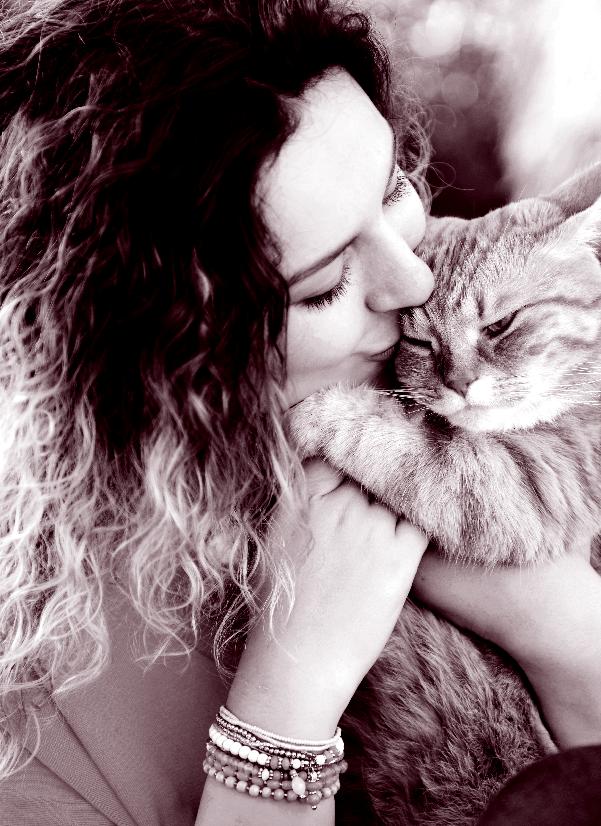
8 Read the sentences. Tick (✓) the four that are grammatically correct.
1 I love the birds.


2 I saw a beautiful bird in the park yesterday.

3 The bird in the park was bigger than mine.
4 It was flying in a sky. 5 I think the bird was a parrot.
6 I think the birds make really good friends.
7 There are many different sizes of the birds.
8 I saw a picture of the biggest bird in the world.

Word stress Go to page 118.
9 Look at Exercise 8 again. Rewrite the four incorrect sentences so that they are correct.
GET IT RIGHT!
a(n) and no article
Learners often use a(n) where no article is needed, and no article where a is needed. ✓ I had a great time with my friends last Saturday. ✗ I had great time with my friends last Saturday.
Complete the sentences with a(n) or – (no article).
0 I’ve got a pet cat.

1 My brother works as chef in a hotel. 2 Do you need to book accommodation? 3 We haven’t had holiday for ages. 4 I’m student at the University of London. 5 We need information about this urgently.
6 I would like to buy desk.